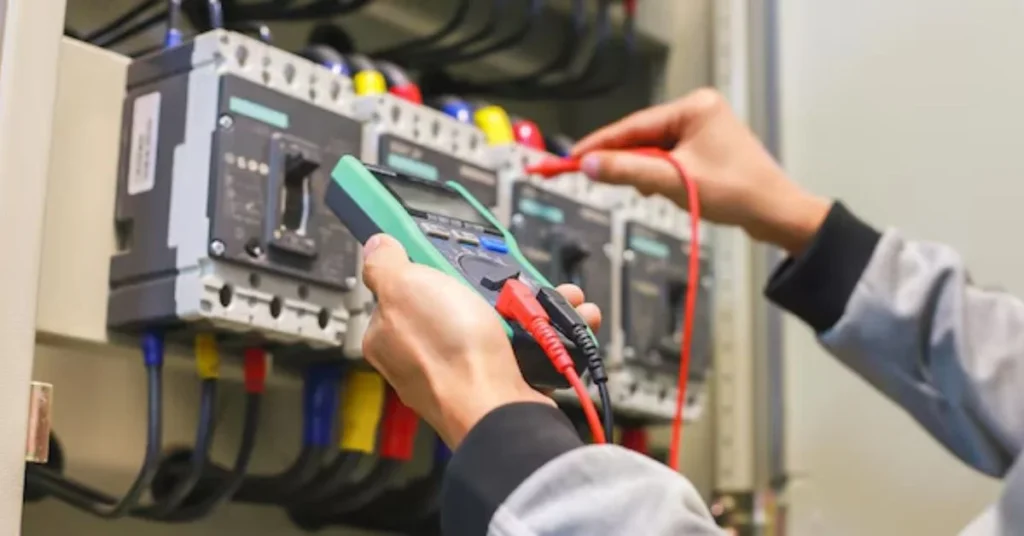Starting an electrical design business is a rewarding venture, especially as the demand for electrical engineering services continues to grow. Whether designing electrical systems for buildings, industrial facilities, or large infrastructures, an electrical design offers an exciting career path. But how do you begin? And how do you ensure your business thrives?
This guide will take you through the process of launching an electric design business, from developing essential skills to attracting clients. You’ll also learn key tips on scaling your business, staying competitive, and succeeding long-term.
What is an Electrical Design Business?
An electrical design business involves creating electrical systems for various types of construction projects. These systems may include lighting, power distribution, safety alarms, and communication networks. As the electrical design engineer, you’re responsible for ensuring these systems are efficient, safe, and compliant with local regulations.
Starting your own electrical business design requires both technical expertise and business acumen. You’ll need to balance design projects, manage client relationships, and maintain a steady cash flow. The road to success might seem complex, but with the right strategies, you can build a business that thrives.
Must read South Lake Tahoe Noise Complaint Business
Skills and Qualifications Needed to Run an Electrical Design Business
Before launching an electrical business design, it’s crucial to ensure you possess the necessary qualifications. This includes a degree in electrical engineering or a related field, and in many cases, a professional engineer (PE) license. This certification allows you to legally sign off on design projects, adding credibility to your services.
In addition to your educational background, hands-on experience is equally important. Having worked as an electrical designer, either within a company or as a freelancer, will give you insight into project management, client interactions, and problem-solving. Strong communication and leadership skills are essential, as you’ll be working closely with other professionals, like architects and contractors.
Finally, having a basic understanding of business operations—marketing, accounting, legal regulations—will help you manage the non-technical aspects of running your own firm.

Steps to Starting Your Electrical Business Design
1. Create a Detailed Business Plan
A solid business plan acts as the foundation for your electrical design business. In this document, outline your business goals, market research, target audience, pricing strategy, and operational plans. It should include:
- A description of your services (commercial, residential, or industrial design)
- The scope of your projects and specific industries you aim to serve
- Financial projections and funding requirements
This plan will not only guide your business but also attract potential investors if you seek external funding.
2. Register Your Business and Obtain Licenses
Legalizing your Business in electrical design is crucial to avoid complications down the road. Start by registering your business name and obtaining the necessary licenses in your area. Make sure you’re compliant with local, state, and federal laws.
Obtaining insurance is another important step. This protects your business from liability issues that may arise during your projects, safeguarding your finances and reputation.
3. Invest in the Right Tools and Software
To run a successful Business in electrical design, you need specialized tools and software. Some essential design software includes AutoCAD, Revit, and ETAP for electrical analysis. These tools will enable you to produce precise electrical designs and simulate the functionality of your systems.
Additionally, invest in project management software like Trello or Asana to help manage client projects and deadlines efficiently.
4. Build a Strong Portfolio
Your portfolio is a key marketing tool for attracting clients. Before launching your business, work on building a portfolio that showcases your skills and experience. You can start by taking on freelance projects or offering pro bono work for friends, family, or local businesses. Make sure your portfolio includes detailed descriptions of the projects, along with technical drawings and visualizations of your electrical designs.
5. Develop a Marketing Strategy to Attract Clients
Without clients, your Electrical design company won’t get off the ground. Develop a marketing strategy to reach potential clients in your target market. Consider the following tactics:
- Create a website: Your website should highlight your services, qualifications, and portfolio. Ensure your website is SEO-optimized so that potential clients can easily find you online.
- Leverage social media: Platforms like LinkedIn and Instagram can showcase your projects and connect you with other professionals.
- Networking: Attend industry events, join engineering associations, and connect with contractors, architects, and real estate developers.

Challenges You May Face in the Electrical Design Business
Running an Electrical design company isn’t without challenges. One major hurdle is the highly competitive nature of the industry. Many companies offer similar services, so standing out from the crowd requires consistent effort and high-quality work.
Additionally, staying updated with new technologies is crucial. The electrical design industry is evolving, with innovations like smart buildings and renewable energy integration becoming more common. Staying on top of these trends and adapting your designs accordingly will keep your business relevant.
Lastly, managing multiple projects simultaneously while maintaining a high level of accuracy can be stressful. However, with the right team and tools, you can ensure that all projects are completed on time and within budget.
How to Scale Your Electrical design company for Long-Term Success
Once you’ve established your business, scaling it becomes the next priority. Expanding your business involves growing your client base, hiring additional staff, and increasing revenue streams. Here are some strategies to help you scale effectively:
- Diversify your services: Offer a variety of design services, including residential, commercial, and industrial projects. By broadening your scope, you can appeal to a larger market.
- Build partnerships: Collaborate with other professionals, like architects, builders, and engineers, to bring in more referrals and joint projects.
- Hire qualified staff: As your business grows, you’ll need to expand your team. Hire experienced electrical designers and project managers to handle larger workloads.
- Focus on client retention: Client satisfaction is key to long-term success. Ensure that your designs meet or exceed expectations to encourage repeat business.

Conclusion
Starting and growing an electrical design business requires a balance of technical expertise and business management skills. With a clear plan, the right qualifications, and an effective marketing strategy, you can build a successful business in this lucrative field. Focus on quality, adapt to industry trends, and maintain strong client relationships to ensure long-term success. If you want to read more information then click here.
What qualifications do I need to start an electrical design business?
You’ll need a degree in electrical engineering and a professional engineer (PE) license. Experience in electrical design is also necessary.
How do I attract clients to my Electrical design company?
Building a strong portfolio, creating an SEO-optimized website, networking, and leveraging social media are effective ways to attract clients.
What tools do I need to run an Business in electrical design?
You’ll need design software like AutoCAD, Revit, and ETAP, as well as project management tools like Trello or Asana.
How do I stay competitive in the electrical design industry?
Stay updated with industry trends, continually improve your skills, and deliver high-quality, innovative designs.
Is an Business in electrical design profitable?
Yes, it can be profitable with the right business strategy, client base, and dedication to quality work.
